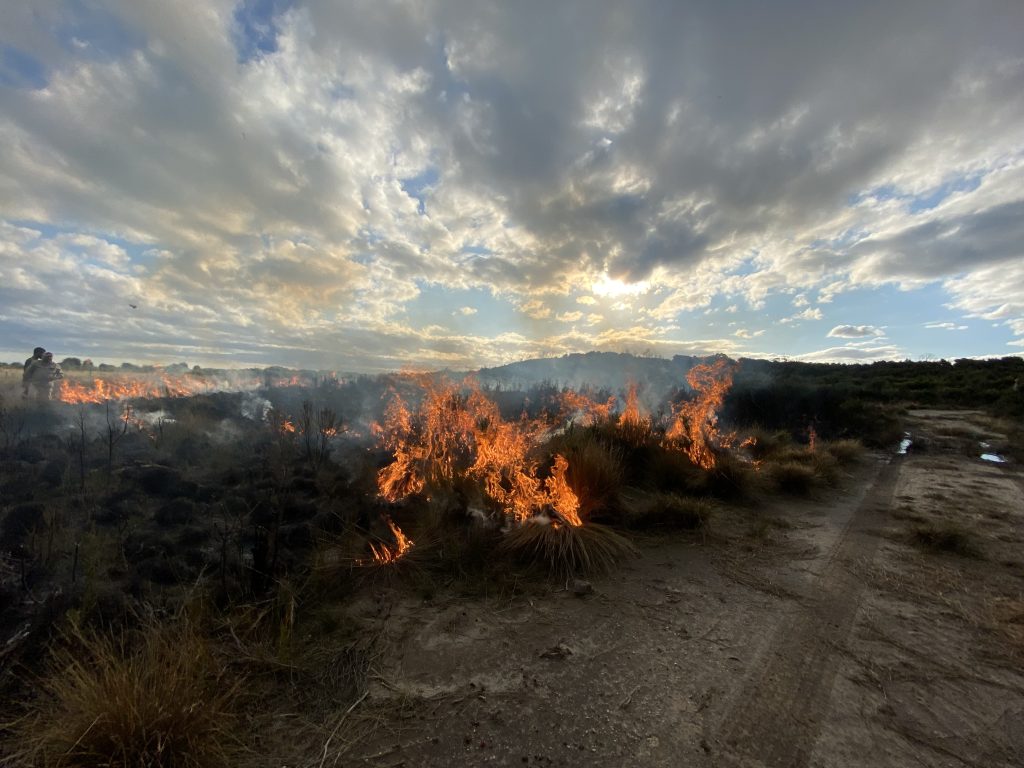
A brief history
Our people have had a deep and ongoing connection to Lungtalanana for thousands of generations. Lungtalanana holds stories from our ancestors from Lumaranatana/Cape Portland and was part of their extended country; it is a place that held special significance to our ancestors and today’s community.
Colonial invasion has harmed the landscape on Lungtalanana, and while its beauty still shines, the Country needs a lot of healing.
Since the 1990’s the Tasmanian Aboriginal community has returned to Lungtalanana, and it was officially declared Aboriginal Land in 2005.
The island has been a place of healing for community, as a destination for wellbeing trips and youth justice programs. Our focus now is to bring the community together to heal the island, and return it being a healthy Country.
The impacts of farming, invasive and non-native animals and vegetation, and wildfire have caused significant damage. However, the wildfire that tore through 98 per cent of Lungtalanana in 2014, has given us an opportunity to consider the way in which we care for the island and how we learn about it and from it.
How can we heal Lungtalanana?
We need to look at many things, including the impact and removal of cats and other non-native animals, cultural burning programs to promote and restore healthy country, re-patriating native animals, and importantly creating a place for our community to spend time and share in.
Rangers have begun learning the relationships with fire in this landscape and how the country responds.
We are also learning about what animals were on the island before invasion and discussing if and how we could repatriate them.
Lungtalanana Healthy Country project
The TAC has formed partnerships to support the development of a plan to rehabilitate Lungtalanana, remove the invasive species, and reintroduce native animals into the environment.
Our five core outcomes are:
- Maintaining and building community connection with Lungtalanana
- Continuance and revitalisation of Aboriginal knowledge and culture
- Training, mentoring and skills development of Aboriginal Rangers and community
- Healthy country: supporting healthy cultural landscapes through cultural burning, removing feral cats, and repatriating culturally important animals
- Development of landscape and species monitoring tools for community use.
Managing the project and working with the pakana rangers, is Dr Tristan Derham. His role is to plan surveys, organise training, liaise with project partners and to seek further funding.

